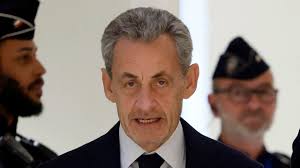
Former French President Nicolas Sarkozy has been sentenced to five years in prison by a Paris court for conspiracy to commit crimes linked to the financing of his 2007 presidential campaign by Libya.
The ruling, issued on Thursday, also renders him ineligible for public office for five years.
The Paris Criminal Court, however, acquitted Sarkozy of charges including passive corruption, illegal campaign financing, and receiving stolen public funds, according to Le Monde. In addition to the prison sentence, the court imposed a €100,000 fine and suspended his civil and civic rights for five years, effectively barring him from political participation during that period.
Two of Sarkozy’s former ministers were also sentenced. Claude Guéant received a six-year prison term, potentially reducible due to health concerns, while Brice Hortefeux was handed a two-year sentence, which could be served under an electronic monitoring arrangement, Le Monde reports.
Sarkozy reacted strongly to the verdict, describing it as “a decision of extreme gravity for the rule of law” and claiming he was the victim of an injustice, according to BFMTV.
The case revolves around allegations that Sarkozy’s 2007 presidential campaign received illegal financing from the Libyan regime of Muammar Gaddafi. Investigators have scrutinized the role of intermediaries and former officials in channeling funds intended to influence the French election.
This sentencing marks one of the most significant legal blows to a former French head of state, highlighting ongoing scrutiny over political funding and the influence of foreign powers in domestic elections.
Analysts suggest the verdict could have wider implications for France’s political landscape, particularly as it sets a precedent regarding accountability for former leaders.
While the sentence includes a deferred remand provision, Sarkozy’s public and political future faces severe restrictions. Legal experts note that appeals are likely, which could alter the final outcome of the case.
The ruling has drawn intense media attention in France and internationally, raising questions about the enforcement of political ethics and the reach of judicial authority over former heads of state.



